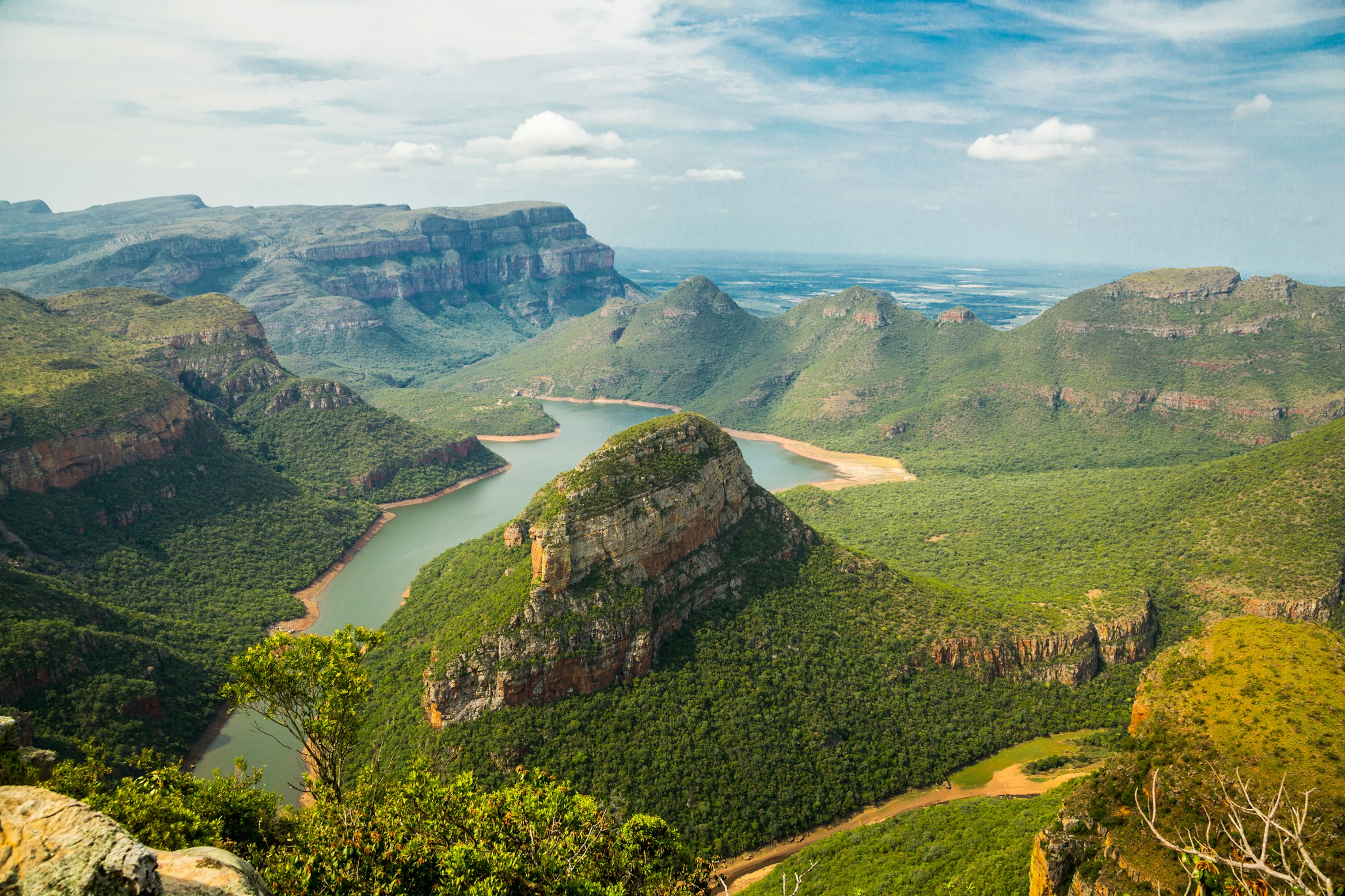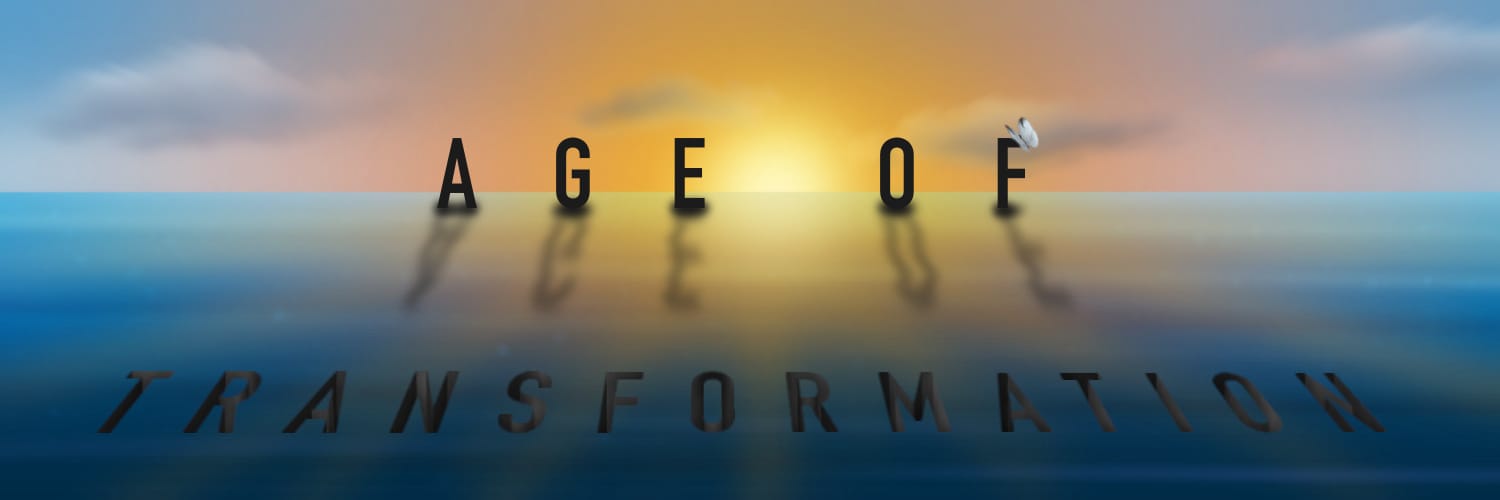After visiting the Gambia in December 2022 – one of the most vulnerable countries in Africa, if not the world, to the devastating impacts of global heating – I realised that while the world needs to understand the tremendous challenges being faced by people on the ground across this continent, what we really need to understand is Africa’s vast potential.
I spoke with community and faith leaders from nine African countries during my trip. Through these conversations, I learned first-hand how the ‘uninhabitable planet’ that climate scientists warn will come if we don’t change course, is in fact already here in cities like Banjul, the beleaguered Gambian capital on the frontline of the global warming crisis.
Yet I also learned that this is only one-side of the story. The far more significant story is that countries like Gambia are in prime position to lead the world to a bold new era of clean energy superabundance. The countries of Africa, I believe, can together become a global solar superpower within the next two decades.
Lost and damaged
“Climate change is the biggest challenge facing agriculture in the Gambia”, said Dr. Demba Sabally, the Gambia’s Minister of Agriculture in his office in central Banjul. With about 80% of Gambian workers employed in various agricultural enterprises, the intensifying impacts of climate change on Gambian food production – from extreme weather events to rising sea levels – has destroyed livelihoods and ravaged the Gambian economy.
“This is the biggest challenge to our economy”, Sabally told me. “But the international community is doing nothing”.
I asked hm about the recent climate ‘loss and damage’ fund agreed at the last UN COP27 climate summit in Egypt, where wealthier countries purportedly agreed to cough up funds to support some of the most vulnerable developing nations in mitigating the worst effects of climate change.
“Too little, too late”, said Sabally. “We welcome these developments, and the goodwill, but there is still no action. We have an agreement on paper, but we still have no action. Where are the proposed funds? Who is providing how much, and to whom? When? Has anyone even set-up a bank account?” He chuckled and shook his head. “We need action, and we need it now.”
He explained that one of the biggest drivers of ecological damage in the Gambia was poverty. “When people are impoverished, they are desperate. They feel they have no choice, for example, to tear down forests for their livelihoods. When we work to tell them ‘no, don’t do this’, it can fall on deaf ears. They need alternatives, not just prohibitions. And year on year, the dangers are just getting worse”.
Hope and hopelessness
Later during my trip to the Gambia, I spoke to a range of leaders from across the continent at the Africa Regional Workshop organised by Faith For Our Planet (FFOP), an NGO working to train faith leaders all over the world to become climate action leaders where I sit on the advisory board.
I met politicians, Muslim imams, Christian priests, broadcasters, teachers and educators, and other professionals from many walks of life, all grappling with the frontline impacts of climate change on their communities.
One of the participants in the conference, a Reverend from Mozambique, explained how over the last four years his country was experiencing a rising epidemic of devastating cyclones, storms, floods and droughts that has so far displaced over a million people. Climate change, he said, is exacerbating the impacts of conflicts centred around the province of Cabo Delgado, which has also displaced close to a million since 2017.
“We do not know what our future holds”, the Reverend explained. With climate change directly destroying the agricultural enterprises that people depend on to survive, households and communities are rapidly running out of options – as well as food, money, water, and safe places to live.
It’s a heart-breaking story that I heard time and time again.
But I also heard inspiring stories of communities standing up amidst levels of hardship and deprivation that are unimaginable for Westerners like me.
One young climate activist from Nigeria told me how he had established a new movement highlighting the ecological dimensions of the Islamic faith. Among the campaigns he has promoted are for mosques to install solar panels. But such efforts are still nascent because the government overwhelmingly supports increasing, rather than reducing, Nigerian oil production.
One thing that became patently clear to me during my trip was a prevailing sense of paralysis. The grassroots leaders I encountered described how the climate crisis seemed overwhelming, unstoppable. Lacking in funds and infrastructure, all too often the options for action seemed limited.
The future
So the excitement in the room was palpable when, during our systems thinking training session, I showed them the hard data demonstrating not only that Africa is destined to be one of the most attractive regions in the world for the exponential industries of the future, but that this destiny will come to fruition within the next 15 years – and is just about to begin.
Solar power is still in its infancy. It is one of a number of existing technologies that is speeding ahead along technological learning curves and cost curves which have two big implications: first, its costs are dropping exponentially, and secondly its performance is improving exponentially.
These interlinked trends have already meant that electricity generated from solar panels is the cheapest in history in most parts of the world: and it’s only going to get cheaper, and better.
Solar, in other words, is a disruptive technology. Just as we have seen with other disruptive technologies like smartphones disrupting landlines, digital disrupting analogue cameras, and cars disrupting horses – disruptions which occurred in as little as two decades – this means that solar power is on track to scale-up and outcompete incumbent energy systems purely due to economic factors far faster than conventional analysts anticipate.
That has a counterintuitive implication. It will ultimately be easier for societies and regions which are less embedded in incumbent systems and industries to rapidly adapt to new disruptive technologies like solar. In contrast, countries that are historically wedded to oil, gas and coal are likely to find it more challenging, as they cling to the dying industries that once elevated them to heights of prosperity.
This means that countries like the Gambia could move much faster than some more developed countries, with the right choices. This leapfrogging phenomenon has already been seen across Africa in specific technologies, such as with the jump directly to smartphones - superseding the need to roll-out expensive and intricate landline networks as Western development trajectories did.
Africa on the whole has other critical advantages. Purely due to the obvious logic that if more sunlight reaches you, then solar power will produce greater returns and offer far more lucrative prospects as an investment then elsewhere, the economic case for solar in Africa is better than for anywhere else.
According to the industry journal Energy Monitor, countries with the highest solar potential will see the greatest growth in solar capacity over the next decade.
The data confirms that Africa has a tremendous potential for solar capacity as high as around 10 terrawatts (TW), which is more than half of the amount of energy we consume globally today. It also has abundant hydro (350 GW), wind (110 GW), and geothermal energy sources (15 GW).
Compared to the countries of the Global North, Africa receives over 50% more sunlight. Africa could meet all its energy needs by covering less than 0.1% of its landmass in solar panels.
In the Gambia, for instance, solar irradiance is about 4.6-6.7 kilowatts per square metre (kW/m2), around double that of the UK where it is around 2.5-3.1 kW/m2. In other words, the Gambia’s solar wealth is double that of Britain’s. When solar matures, this reality will become inescapable.
This is a gamechanger. According to the World Bank, Ethiopia could generate sufficient energy to satisfy its existing needs for 109 million people by covering just 0.003% of its land with solar panels. So imagine what would happen if the countries of Africa raced to maximise their capacity to harness solar energy?
The dynamics of disruption also mean that renewable energy learning curves are faster in Africa than elsewhere. This means that as these technologies are deployed across the region, they will become better and better, faster than elsewhere. Which means that the solar revolution will sweep across Africa in a way that conventional analysts will find extremely surprising.
Given that every single year over the last decades the forecasts of agencies like the International Energy Agency have consistently failed to anticipate how fast renewable energy technologies are actually being deployed, and how much cheaper they are getting, I wouldn’t bet too much money based on their bleak scepticism.
African superpower
There is another opportunity here that conventional analysts completely fail to understand. That opportunity is called ‘superpower’ – a term coined by the technology forecasting think-tank RethinkX where I was fortunate to learn about its stunning implications in-depth as former head of research communications.
Adam Dorr, RethinkX’s research director, discovered that there’s a way of optimising how to build out a renewable energy system and its various combinations of solar, wind and batteries: supersize the solar and wind generating capacity to between three to five times existing demand. When you do that, you no longer need months worth of battery storage, but just days.
That dramatically reduces the system costs – and the mineral inputs. It also has an amazing side-effect: your new clean energy system will now generate three to five times more energy than the older fossil fuel system was producing.
As renewable energy systems last as long as 30 years if not longer – experiencing a tiny percentage of degradation every year after – once it’s built it doesn’t need new inputs of oil or minerals to keep going. For the most part the system takes care of itself, while generating surplus energy at no further cost. That’s why such a system is called a ‘zero marginal cost’ energy system: it is basically producing vast quantities of energy, up to five times what we currently produce, for free.
RethinkX argued that ‘superpower’ is an innovation like the internet. Just as the internet created the foundation for vast new business models and value chains that has created trillions of dollars of innovations which have quite literally changed the world, superpower will do the same.
There will be a scramble to figure out all the different ways we can make use of clean, virtually free and unlimited energy. Whole industries will be able to harness superpower to eliminate their currently exorbitant energy costs which depend on giant oil and gas inputs. All sorts of things like wastewater treatment, water desalination, recycling, mining, manufacturing, data-centres, robotics, carbon withdrawal via direct air capture, and beyond will all flourish thanks to superpower.
And, of course, the regions that can supply the most superpower – like Africa – will become the most sought after regions in the world. You want to know where the next magnet for the industries for the future will be? Look to Africa.
When I explored what the hard data was pointing to, I realised that the conventional climate story on Africa is doing the continent a great disservice.
Harnessing African wisdom
Technological change is only part of the story. The other part is how indigenous African knowledge can contribute to efforts to both fight climate change and adapt to it.
While technology can give us powerful tools, the bigger question is how we reorganise our societies in order to manage the way these tools work. In the emerging system, incumbent ideology, values and governance structures some of which are built around centralised control, exploitative competition, predatory growth, and reductionist materialism will simply not be capable of managing such a system.
One reason for this is that it will have such fundamentally different dynamics, which are more networked, distributed and participatory. This means that to manage this emerging world, we need a new culture, new governance systems, new values, as well as new mindsets and ways of seeing the world.
The African philosophy of ubuntu offers one such powerful cultural resource for rethinking our global identity as a species. Originating in Southern Africa, ubuntu is a Nguni word which refers to our collective humanity, entailing that personal identity is symbiotically entwined with community. One of its most fundamental moral principles is the idea of a moral obligation to present generations, as well as past and future generations.
Indigenous and local knowledge is already providing ways for grassroots communities across the continent to anticipate weather and climate hazards; to optimise smallholder farming through timing of planting, seed varieties, water and pasture storage, food and seed preservation, among other techniques; and so on. However, these techniques sometimes amplify local crises, while in other cases they hold the potential to enhance agricultural productivity, livelihoods, and alleviate poverty. If indigenous wisdom is integrated into modern scientifically-supported adaptation approaches, this ‘bridging’ of knowledge systems can spur on a virtuous cycle of transformation.
Our African future
Yes, Africa is one of the most vulnerable regions to climate change. Its inhabitants are being hit harder than populations elsewhere, and this predicament is bound to worsen in coming years as the impact of existing carbon emissions is felt. We need to actively plan for these impacts, and work together at breakneck speed to both adapt and mitigate them.
But the real story of Africa is about its vast future potential as a high-technology centre of sustainable civilisation. Africa holds the key not only to solving our biggest climate challenges, but to unprecedented clean energy abundance and economic prosperity. Moreover, this is a future that we are racing toward thanks to the economic dynamics of disruption. Of course, we aren’t racing fast enough – and if we don’t accelerate, we could lock in dangerous climate change with devastating consequences.
But we can mitigate the chances of such mistakes by ensuring that more and more people can see this potential for themselves – because you can’t work toward a future you can’t see.
By recognising this beautiful future, this tremendous potential, we can empower ourselves to make better choices, to avert worst-case disasters and lay the foundations for a world of plenty.
The participants of my workshop in the Gambia told me that they had never heard of these possibilities before. For the first time, they said, they can envision a future of hope and opportunity right round the corner.
I had only one piece of homework for them: for each of them to do what they can to make everyone around them aware of the continent’s bright promise, from the grassroots to governments, so that we all can begin working together to accelerate the path forward.
If you want to help speed up this acceleration, you can do the same.
This article is an expanded version of an article first published by Byline Supplement.
If you appreciated this piece, you can keep this free newsletter alive and thriving by joining our community as a Supporter for the price of a cup of coffee a month.
Already have an account? Log In







